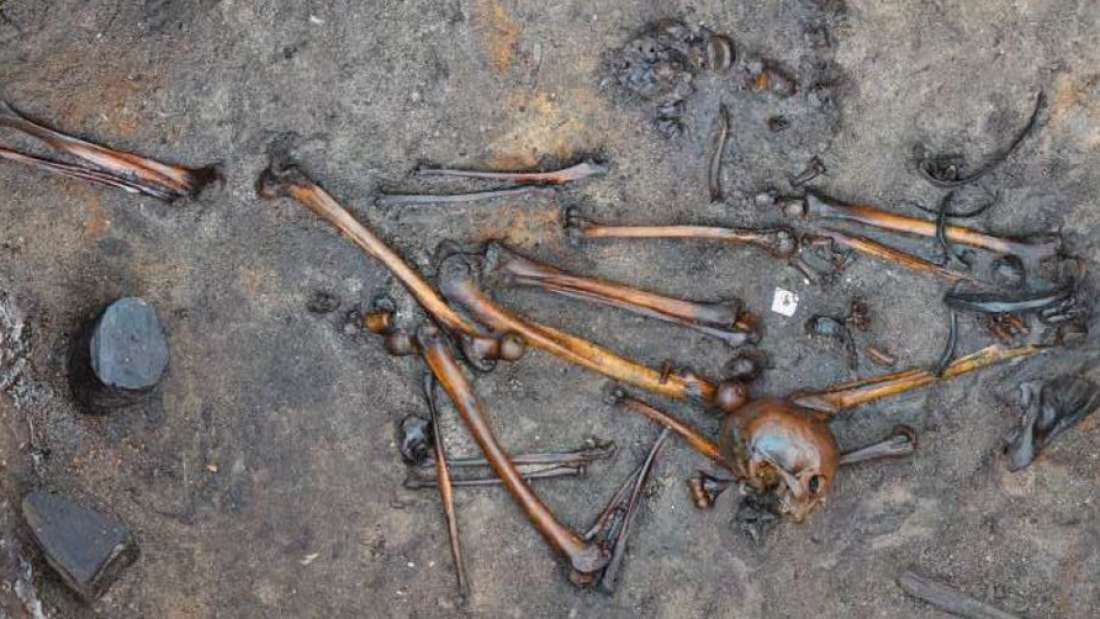
Bone trove in Denmark tells story of ‘Barbarian’ battle.
Archaeologists have recently stumbled across the gruesome aftermath of a violent battle between northern European tribes around 2,000 years ago. Discovered in a dank bog on the Danish peninsula of Jutland, they uncovered thousands of bones belonging to an estimated 380 men and boys, as documented in the journal Proceedings of the National Academy of Sciences.
The discovery of axes, spearheads, swords, and shields strongly suggests this was a battleground. This was further confirmed by the discovery of skeletal remains with clear signs of corpse mutilation. Most of the skeletons shared signs of “unhealed trauma from sharp-edged weapon,” which suggests they received them just before they died, without time to heal.
Many also featured strange marks that indicate they were cut, chopped, scraped, butchered, and toyed around with it after they died. Animal tooth marks suggest the bodies remained on the “battleground” for around six months to a year before being moved into what would have been a lake but is now peatland.
Strangest of all, they even found four pelvic bones that had been “treated” together on a stick (pictured below), suggesting that someone went around collecting the bones together in a bizarre ritual to clear the battlefield of the dead.
“Those four pelvises on a stick could almost point to having connotations to sexual humiliation. It seems to have aggressive undertones to it as well. So it has been difficult to say who did it,” co-author Mette Løvschal, of the Department of Archaeology and Heritage Studies at Aarhus University, told AFP.
“And you can see stuff that you can normally not see in them like the gnaw marks of animals and the cut marks from sharp weapons. That is highly unusual,” she added.
The time of this battle would have coincided with the northern expansion of the Roman Empire, although it was mostly Germanic tribes fighting inter-tribal warfare, not barbarians fighting Roman warriors.
The Romans referred to non-Roman groups of people as barbarians, such as the Germanic tribes, the Huns, and the Celts. The word “barbarian” is said to have come from the Ancient Greeks, who thought their “uncivilized” neighbors in the south sounded like they were saying “Bar bar bar” when they were talking.
As these bones show, it’s easy to see why the Roman saw them as war-obsessed brutes.













